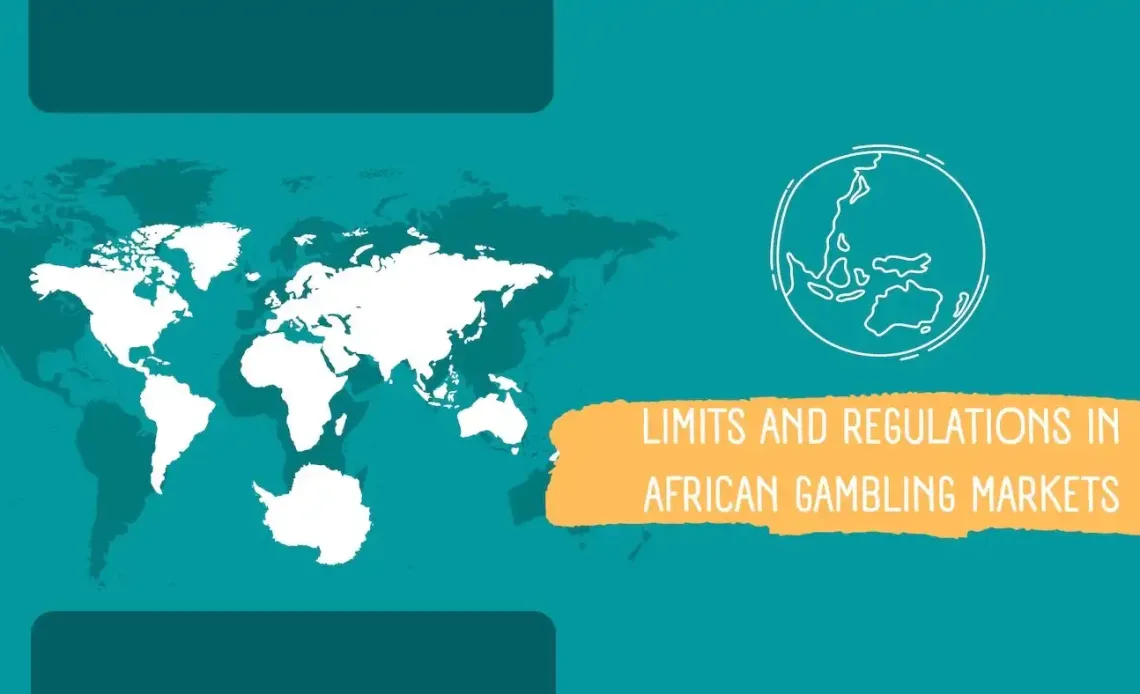
The gambling industry is rapidly evolving globally, and Africa is one of the developing markets. The second-largest continent in the world has over 1.2 billion population, being a titbit for international casino operators. The number of people engaged in gambling varies depending on the country: for instance, Kenya has the highest indicator (81%). Nigerian reports state that approximately 65% of its residents have previously engaged in the activity.
All in all, the figures are high, making Africa an attractive destination for gambling companies. The local legislation differs, but entertainment is usually allowed once it is regulated. Let’s have a closer look at more details about the sector’s development on the continent.
Legality of Gambling in Different African States
The continent has a well-established gambling infrastructure, and many countries have already implemented appropriate industry regulations. Online and offline casinos are allowed in South Africa, Kenya, Nigeria, Mauritius, Zimbabwe, etc. At the same time, Angola, Namibia, Ghana, Botswana, and some other states have no particular iGaming laws, implying that virtual gambling is not regulated there. It means that locals can engage in casinos without limits and other restrictions and enjoy their pastimes. Of course, many countries completely prohibit gambling activities. These include Libya, Sudan, Somalia, Burundi, and Mauritania. The restriction is connected to local religious beliefs. However, it’s rather an exception for the African continent, as casinos are still legal in most regions.
Such a high accessibility of online and offline gambling in these countries make them a target market for numerous foreign and local gaming companies. At the same time, the sector faces numerous challenges governments and responsible bodies are yet to cope with. Therefore, the country’s regulatory bodies implement appropriate limitations and rules.
Illegal Gambling Is Strongly Punished
Although not all countries on the continent boast appropriate industry regulations, those that do provide strict requirements for operators and players. For instance, South Africa is a rapidly developing market, and numerous international operators enter the region. They are only allowed to provide services in the state if licensed and controlled by responsible authorities.
Strict Bans & Age Restrictions
As well as many other countries in the world, African states imply age limits for those desiring to engage in online and offline gambling. Individuals under 18 are prohibited from joining virtual casinos and visiting brick-and-mortar establishments. Operators must initiate the verification procedure and ask their members to provide a relevant ID or driving licence to confirm their age. Otherwise, the gambling venue can be fined, while the underage player will be blocked.
Implementation of Responsible Gambling Initiatives
Gaming-related disorders are the primary challenge the entire industry now faces. Governments and regulatory authorities globally search for measures to cope with this problem. Since the sector still lacks control in multiple African countries, their population is more vulnerable to risks and addictions. Poor communities are more prone to invest their funds hoping for huge mystic wins, which is a significant industry challenge. Unsurprisingly, the younger generation representatives are frequently targeted with the disease, as they actively surf the web and click the bright casino ads.
Governments have already begun working to fight this problem – and the first step is accepting only reliable and licensed casinos. Such an approach guarantees a fair and transparent environment for players. At the same time, reliable operators often inform members of possible risks and send notifications that recommend players to take a break. Moreover, popular online casinos usually provide access to support groups, helplines, and self-exclusion programs that can help compulsive gamblers overcome addictive behaviours.
Setting Limitations & Encouraging the Use of Technologies
Multiple casinos operating in Africa impose particular limits for their players. However, not all operators are responsible – some allow users to invest huge sums, which can result in massive debts. Strong deposit and withdrawal limits are among the working strategies to eliminate compulsive gambling and develop healthy behaviours among players.
Technological advancement actively discussed in the news is the key driver to success, as multiple AI-based mechanisms analyse user activities on the platform and provide them with recommendations. This feature allows setting limits and make players stick to them; for example, if an online casino’s maximum top-up is $1,000, the system won’t allow its members to invest more. Customer verification is also essential in this case – users should provide valid information about themselves to avoid any potential pitfalls.
Final Thoughts
The gambling sector is developing and regulated in numerous African countries. However, much work still needs to be done to reach the required transparency level and avoid the negative consequences of casino playing. First, more states should implement appropriate gambling legislation and ensure strong compliance with all requirements.
A more substantial responsible gaming basis should be presented to players and operators. Increasing customers’ awareness of potential risks and harms is on the industry’s agenda globally, and numerous regulatory bodies collaborate to achieve this goal. African governments should join these initiatives or create similar campaigns to provide a safer landscape for risk lovers.

